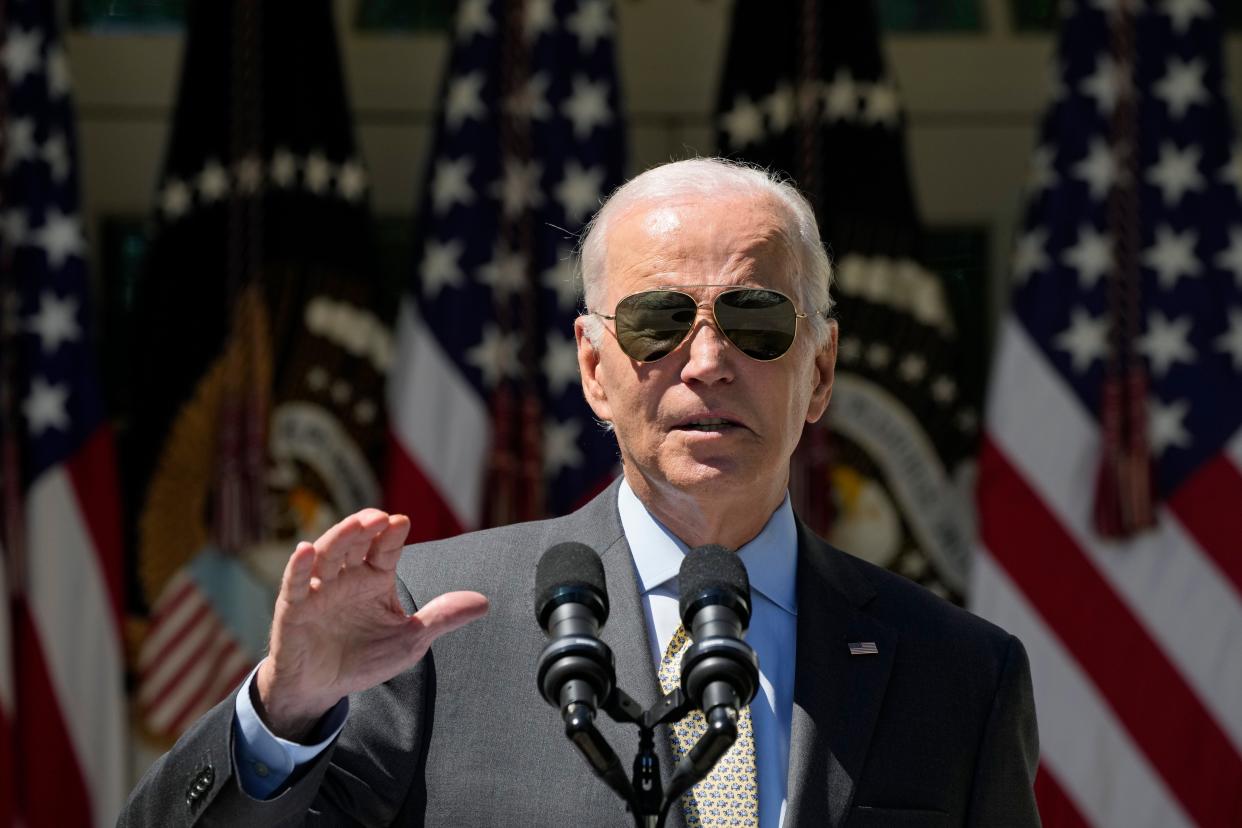Paleologos on the Poll: Irony for Trump, red flags for Biden in survey of unlikely voters

- Oops!Something went wrong.Please try again later.
- Oops!Something went wrong.Please try again later.
Right now, President Joe Biden and former President Donald Trump are dead even in national polls – most of which survey likely voters, according to the RealClearPolitics average.
With likely voters having largely made their minds up already and split evenly, the mood of the unlikely voter – who is intentionally screened out of most surveys by pollsters – may have an outsized impact on the 2024 election outcome.
One might point out: But these respondents are saying they aren’t voting next year, so who cares? My response: Unlikely voters represent a massive block of potential voters in the U.S., with estimates ranging from roughly 90 to 100 million citizens. That’s more potential voters than Joe Biden received in the 2020 presidential election, when he set the record for the most votes received by any presidential candidate in the history of our country.
So, where do these potential voters get their information? One-third named social media (Facebook, X, Instagram or TikTok) as their primary source of political news and information, twice as many as in 2018. Conversely, TV news networks has dropped from 52% to 36% during that same time.
Five years ago, Suffolk University and USA TODAY partnered on a poll of unlikely voters exclusively and showed that by “getting out the vote,” the Democratic nominee could win the presidency. In the poll, a generic Democratic nominee (the nominee had not been selected yet) was leading then-President Trump in a hypothetical general election matchup, 35%- 26%. Thus, every unlikely voter the Democratic National Committee nudged was more likely to vote for the Democratic nominee than Trump. COVID increased the availability of mail-in and absentee ballots and reduced the barriers to voting in many states. The result: A Biden win.
Today, Suffolk and USA TODAY released findings from a current national poll of unlikely voters, and the results contrast sharply from what we published five years ago. Among unlikely voters who are not registered to vote, Trump now leads Biden in a hypothetical general election matchup 28% - 15%. That margin expands to 32%-13% among those who are currently registered, but unlikely to vote. An opposite dynamic is in play compared to five years ago: Every unlikely voter the Republican National Committee is able to nudge is more likely to vote for Trump than Biden and incrementally tips the scales in favor of Trump. The result: TBD.
Similar to 2018, these voters are very negative on political parties, in general. Nearly seven in 10 say that a third-party or multiple political parties are necessary in the United States. But when it comes to the news media, 68% of those registered but unlikely to vote have a negative opinion of it, significantly higher than the 55% who panned the media in 2018. It's a staple talking point for every Trump speech over the last five years.
A second red flag for Biden is the lack of enthusiasm for his reelection. When respondents were asked to tell us the first word or phrase that comes to mind when you hear the name Joe Biden. 21% used a negative descriptor, 19% said either “old” or “time to retire,” and 15% said he was doing a poor job or characterized him as a “puppet,” “corrupt,” or “confused.” Total adverse sentiment 55%. And among registered but unlikely voters, Biden’s approval was 21% approve – 61% disapprove. The same group was asked if there was anyone they could think of that they would be certain to go to the polls for: 10% named Donald Trump, 2% a piece picked Bernie Sanders, Michelle Obama, Robert F. Kennedy, Barack Obama, and Ron DeSantis. Just 1% named Biden.
To be fair, in 2018, then-President Trump drew the wrath of this same group of non-voters (who used many vulgar descriptions of him) totaling nearly half of respondents - but not a majority. When respondents were asked today what it would take to get these potential voters out to vote, 40% said “better choice/honest candidate/someone I like” so that may not be Donald Trump or Joe Biden for nearly half of them. Another 16% said there is “nothing/need a miracle” to get them to vote.
Here’s the irony of ironies: when the unlikely voters were asked why they were registered but not voting next year, about 13% used the words “election is rigged/corruption/unfair/don’t like the voting process/mail-in ballots.” These have been Trump’s words for the past five years, and the very people who could help elect him have totally soured on elections and voting.
David Paleologos is the director of the Suffolk University Political Research Center
This article originally appeared on USA TODAY: Paleologos on the Poll: Irony for Trump, red flags for Biden

